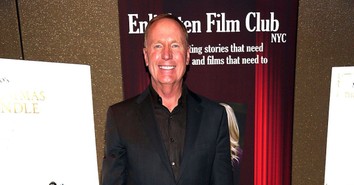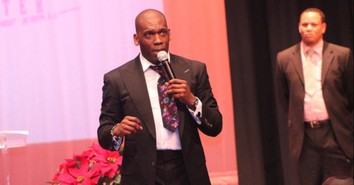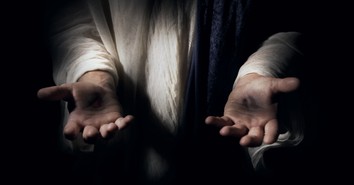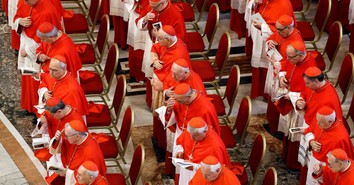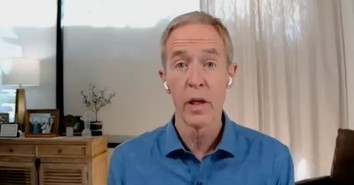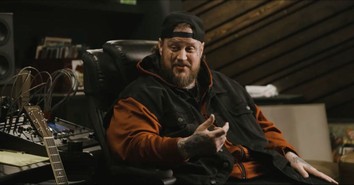Interview: Max Lucado Speaks Candidly About Personal Struggles, His New Book, and the Importance of Hope.
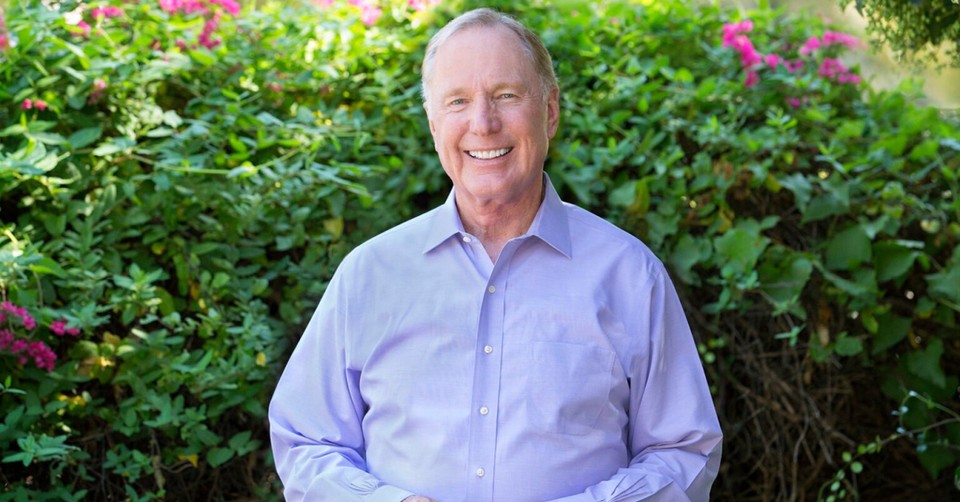
Max Lucado seems ready to talk about his new book “God Never Gives Up on You” and how it has played out in his own life. In a sit-down interview with Christian Headlines, Lucado said that he would be a lost sinner without God's love and grace. In his new book, Lucado reveals his struggle with a demanding schedule, which drove him to drink alcohol. Lucado also reveals in the book how God didn’t give up on him even while trying to hide his sin. It led him to study the life of Jacob, the main Biblical character the book explores. Lucado believes we have more in common with Jacob than we realize. Yet God has still chosen to use us anyway.
Christian Headlines: Why Jacob? And where did you get the idea to write about his life?
Max Lucado: I got the idea to write about Jacob in a golf game. I play golf. I'm not very good. In fact, for all I've played over these years, I could have become a doctor if I'd invested that time in studying medicine instead of trying to learn golf. I play with a group of guys, and they laugh because I'm a pastor, and they're anything but religious. Their language is salty. They always apologize for their jokes and pull out the bottle too soon. I really love those guys. I really do. They're fun. They're fun to play golf with. It made me wonder which story in the Bible speaks most to people who would say, ‘I'm God's lost cause.’
CH: What did you learn about Jacob?
Lucado: I've always followed Jacob from a distance. I owned a book about Jacob written by someone else and pulled it down off the shelf. I thought he was a scoundrel. I mean, he got into trouble more than he didn't. And he seemed to move from one bad decision to another. Yet, God was faithful to him. God kept His promise to his grandfather, Abraham, to bless the world through Jacob. Even Jesus referred to ‘Abraham, Isaac, and Jacob.’ He didn't say Abraham and Isaac and that other guy, you know? I love his story and think it’s for every person. It's an every guy, every lady kind of story.
CH: What did God teach you through this project? What ‘aha’ moments did you walk away with?
Lucado: Maybe it's my conservative Protestant upbringing, but I kept thinking at some point that God would have had enough of Jacob. At one point, he lied to his dad and cheated his brother. The first time we hear him pray, he's trying to negotiate something with God: if you do this, I'll do that. He wasn’t really a great father, from what I can tell. He's had two wives and two handmaidens. He had babies with all of them. His kids went Rambo on a village, recorded in one the ugliest chapters in the Bible. I kept thinking, okay, God will say, ‘I've had enough with you, Jacob.’ But he never does.
In our society, people seem to think they're God's lost cause or that God doesn't have a place for them. Does God have a place for someone like me? That's a good question. According to Jacob’s story, the answer is ‘yes.’ Not because we deserve it but because God has determined it.
CH: Why do you think we gravitate toward transactional theology as Jacob did?
Lucado: It's really an inverted upside-down view of God.
I’ve found myself doing it when I ask God to forgive me for something I've done many times before. And I'll pray something like, ‘Lord, please forgive me, and I'll do better.’
I don't know if I'll do better. I really will try, but place me in the right circumstance or certain place, and I could easily stumble again.
CH: In the book, you wrote that nothing stunts spiritual development more than a flea market view of God. Can you explain that?
Lucado: This is on my mind a lot these days because we're studying the end times at my church. I realize we're not talking about end times today. End times discussions get very fantastical. I believe in a rapture, and I believe there'll be a millennial kingdom. Not everybody in our church does, and that's fine. We're okay. None of us get it all. One of the pushbacks is: ‘That’s just so crazy.” I mean, it's bizarre. People of God being raptured, and then Christ returning to the earth. I get why people may not understand it. Not from a theological standpoint but from a fantastical perspective. My response is, ‘But our God does that kind of stuff.’
He created a buffet to feed, you know, 5,000 men plus women and children. He vacated graves. He's a big God. He's a God of surprises. To answer your question, the flea market view of God says, ‘God is small enough that I can ask him what to do, and He has to do it.’ But the correct view of God, the holy view of God, says God will do whatever He wants. He wants to hear from me and may even respond far beyond what I might ever ask, dream, or imagine.
CH: Who is someone in the Bible you look to when it comes to understanding God’s power?
Lucado: I think of Elijah. There are long stretches in scripture and history where everything just moves along. Then, suddenly, Elijah comes along, and fire falls from heaven. So, we must remain open to this immense God who, at the appropriate times and in the appropriate ways, will do something that will cause everybody in the world to talk about it for millennia.
CH: Why is having hope so important?
Lucado: We can't ever give up hope, you know? I interviewed with a non-religious interview, and the reporter asked me about ‘all the unrest in culture,’ I could feel the heaviness in his voice. I don't know if he believed me, but I said, ‘But you know what, there's always light at the end of the tunnel with God. There's always a breakthrough, and there's always a possibility for a fresh start. You just never know.’ I don't think he quite heard me. Maybe he did. But we do have hope.
Closing:
It's Hope Lucado is hoping for his audience, and people will discover through the message God has given him to share. Lucado’s writing career started in South Florida as an associate pastor who took on the task of doing the weekly bulletin when the Pastor didn’t want to. It’s something Lucado doesn’t reflect on often.
“I tend to finish a project and go quickly to the next and next to the next. I don't back away like I should and reflect on how God has been so good to me. I’d rather complain about deadlines, but I need to be grateful for the opportunities that have come my way,” Lucado said. “You know, the funny part of my story is that three pastors told me not to write. I sought their advice and got a list of how hard it is to get published, and one of them even said you have to be Chuck Colson to get published. “I believed them for a while,” Lucado remarked when reflecting on his start on what many readers are thankful that he didn’t take the advice of his friends.
Photo Courtesy: ©RNS/Karen James/Max Lucado
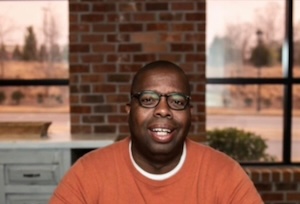
Originally published September 25, 2023.
